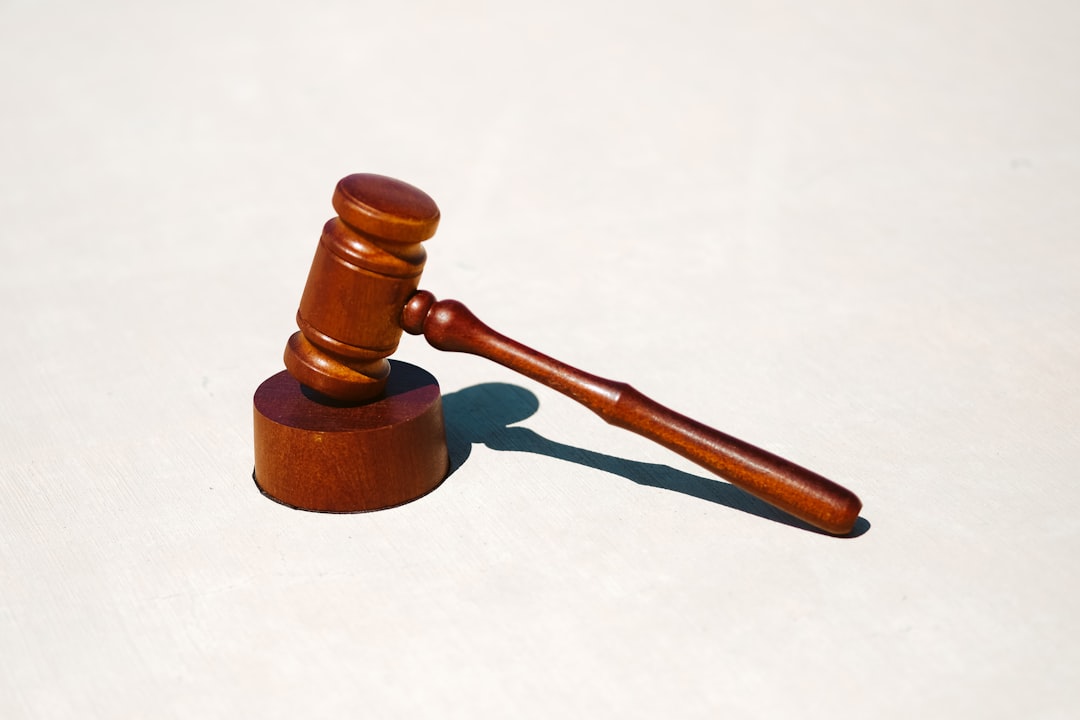In Michigan, robocalls are a common problem, but the Telephone Consumer Protection Act (TCPA) offers protections. If you're receiving unsolicited automated calls, a spam call lawyer can help determine if you have legal recourse and guide you through potential litigation for damages. Businesses like Wellston's Pine River Canoe Livery can explore legal options under Michigan's strict spam call laws to protect their operations from intrusive robocalls. Consulting with a specialized law firm or lawyer is crucial to reclaiming peace of mind.
“In today’s digital landscape, businesses like Wellston’s Pine River Canoe Livery in Michigan are navigating a new challenge: robocalls. These automated, often unwanted calls can disrupt operations and customer experiences. This article explores the rise of recreation-related robocalls and their impact on local businesses. We delve into Michigan’s spam call laws, specifically the TCPA, and provide practical strategies for combating these nuisance calls. If you’re asking, ‘Can I sue for robocalls in Michigan?’, this guide offers insights from top spam call law firms to help businesses protect themselves.”
Understanding Robocalls and the TCPA in Michigan

Robocalls, or automated phone calls, have become a pervasive issue for many businesses and individuals across the country, including Michigan. The Telephone Consumer Protection Act (TCPA) is a federal law designed to curb excessive or unwanted phone marketing calls, often referred to as spam calls. If you’re in Michigan and receiving robocalls, understanding your rights under the TCPA is crucial.
Under this law, businesses are prohibited from using automated dialing systems or prerecorded messages to make marketing calls without prior express consent. If a company violates this rule, individuals can take legal action and potentially sue for damages. In Michigan, a spam call lawyer or law firm specializing in TCPA cases can guide you on whether you have a valid claim and help you determine if you can sue for robocalls made to your personal or business phone lines.
Wellston's Pine River Canoe Livery: A Case Study

Wellston’s Pine River Canoe Livery, nestled in the heart of Michigan’s scenic landscape, has long been a vibrant and bustling destination for outdoor enthusiasts. This case study highlights their unique challenge with recreation-related robocalls, which has sparked concern among local businesses and visitors alike. With a growing number of unwanted automated calls flooding people’s phones, Wellston’s owners found themselves navigating a complex web of regulations and legal options.
As a prominent canoe livery service, they rely heavily on word-of-mouth and online reviews to attract customers. However, the constant barrage of spam calls targeting consumers has impacted their business significantly. This issue prompted them to explore legal avenues, considering whether they could sue for robocalls under Michigan’s strict Spam Call laws, represented by TCPA (Telecommunication Act of 1997) regulations. Engaging a specialized spam call law firm or spam call lawyers in Michigan became a strategic step towards ensuring their business rights and protecting their reputation in the local community.
Legal Options for Recreation Businesses Against Robocalls

If you own a recreation business in Michigan and are tired of unwanted robocalls, knowing your legal options is crucial. While many businesses consider these automated calls a nuisance, there are potential avenues to take if these calls invade your operations or customers’ privacy. The Telephone Consumer Protection Act (TCPA) is a federal law designed to curb excessive telemarketing and protect consumers from unwanted phone calls, including robocalls.
Under the TCPA, businesses can file legal action against call centers and telemarketers who violate the act. This includes seeking damages for each violation, which can be significant. In Michigan, a spam call law firm or lawyer specializing in TCPA cases can guide you through the process of identifying the caller, gathering evidence, and pursuing legal recourse. If your recreation business has suffered due to robocalls, don’t hesitate to consult with a legal professional experienced in handling such matters.
Navigating Spam Call Laws: Who Can Sue and How?

Navigating the world of robocalls can be a frustrating and time-consuming endeavor. If you’re receiving unwanted automated calls in Michigan, you may wonder if you have any recourse. Luckily, there are laws in place to protect consumers from spam calls, specifically the Telephone Consumer Protection Act (TCPA). This federal law prohibits automated phone calls made to personal devices without prior consent.
If a business or individual violates this act, you may be able to take legal action. In Michigan, a spam call law firm or lawyer specializing in TCPA cases can guide you through the process of suing for robocalls. They will help determine if your rights have been infringed upon and assist with gathering evidence to support your case. Understanding your options and taking action against intrusive robocalls is essential to reclaiming your peace of mind.
Protecting Your Business: Strategies to Avoid and Handle Robocalls

Wellstons Pine River Canoe Livery, like many businesses in Michigan, faces a constant battle against robocalls. These automated, unsolicited phone calls can be particularly problematic for small businesses, disrupting operations and damaging customer relationships. To protect your business from this growing nuisance, several strategies are available.
First, consider implementing call blocking software or systems that automatically filter out robocalls. Many modern phone service providers offer such tools. Additionally, staying informed about state laws, such as Michigan’s anti-spam legislation, is crucial. The Telephone Consumer Protection Act (TCPA) provides substantial legal protections against unwanted calls; you can consult a spam call law firm or lawyer specializing in TCPA cases in Michigan to understand your rights and options if your business is targeted by robocallers. If a call turns out to be malicious, don’t hesitate to report it to the Federal Trade Commission (FTC) or relevant state agencies; this data helps in tracking and penalizing offenders.






